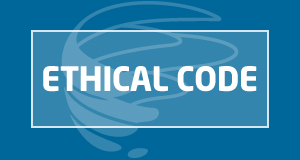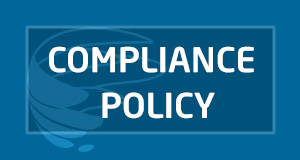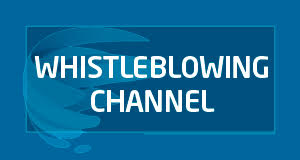Code of ethics and Complaints channel
Code of ethics
In accordance with new regulatory requirements with regard to compliance structure and regulatory compliance, PRISA has a Compliance Unit that supervises the operation of and compliance with the Group's criminal prevention model. Additionally, it promotes ethical behavior among all employees and monitors compliance with all current legislation applicable to the Group's activities, as well as with the internal regulations of the organization.
Our Code of Ethics, approved by the Board of Directors on December 15, 2015 and updated on April 29, 2019, outlines the principles and rules of conduct that should govern the actions of the companies that make up Grupo Prisa and those of all its professionals. The Code of Ethics is thus, in a sense, the Group’s most basic reference manual.
The reputation of prestige and quality enjoyed by PRISA has been built up over time since the very beginning of the Group, and is the result of the collective and daily endeavors of each and every one of the people who are part of the PRISA project. The smooth and successful running of the organization depends on their commitment and individual responsibility.
Acting with integrity is so much more than protecting the image and reputation of the company. It also involves providing and maintaining a place where everyone is proud to work. That’s why, since 2011, PRISA has had an ethical code which, through its values and guiding principles, defines the behavior patterns that enable the company to set the gold standard in education, news and information, and entertainment in Spain and Latin America.
Compliance Policy
With the Compliance Policy, PRISA declares its commitment to the compliance function, on the understanding that this entails not only complying with applicable laws and internal regulations but also fostering a culture of corporate ethics and integrity in its day-to-day operations.
PRISA further declares its commitment to the culture of disclosure as a means of preventing or detecting compliance risks and to protecting good faith whistleblowers against retaliation of any kind.
With this policy, PRISA strengthens its commitment to the company’s purpose and to the values, principles and rules of conduct set out in the Code of Ethics, which are the pillar on which the entire compliance model is built and also a lever for promoting sustainability.
Whistleblowing Channel
Through this channel a person may report irregularities or breaches of internal or external regulations in matters concerning the PRISA Group Companies, their Professionals or their activities.
This system is designed, established and managed to be secure and ensure the confidentiality of the identity of the reporting person and any other person mentioned in the report, as well as of any action taken in managing and processing the report, and to ensure data protection and prevent access by unauthorised persons.
The system also allows reports to be submitted anonymously.
The Prisa Group will not allow retaliation of any kind against persons who, acting in good faith, report through this channel matters that may constitute breaches of current laws and regulations by its Professionals.
A person who is aware of irregular conduct, non-compliance or breach of regulations may also inform the competent authorities and, where appropriate, the institutions, bodies, offices or agencies of the European Union. In Spain, reports may be addressed to any of the following, among others: the AII (Independent Whistleblower Authority), once it has been established; the AEPD (Data Protection Agency) www.aepd.es; the CNMC (National Markets and Competition Commission) www.cnmc.es; and the CNMV (National Securities Market Commission) www.cnmv.es, depending on the nature of the irregularity.
The characteristics of the information system used by the whistleblowing channel and the manner in which this system is managed are described in the Compliance Policy and the Whistleblowing Channel Internal Information System Management Procedure.
Personal Data Protection
The purpose of this whistleblowing channel is to allow Promotora de Informaciones, S.A. (hereinafter PRISA), whose registered office is at Gran Vía, 32 - 28013 Madrid, to handle reports of breaches received, conduct investigations of matters reported and take appropriate corrective measures.
Personal data will be treated confidentially and will not be disclosed to third parties, except insofar as disclosure is essential for investigation of the matters reported, such as to the relevant persons in the PRISA Group companies concerned.
If a report is anonymous, no personal data of the reporting person will be processed. However, if a reporting person voluntarily provides data that allows the person to be identified, PRISA will process both the report and any data provided for the purposes described above and also, where applicable, for the purpose of informing the reporting person of the outcome of the procedure.
The legal basis for processing is compliance with the legal obligations applicable to the PRISA Group.
The data will be processed for the stated purposes for such period as may be necessary for the investigation of the report, in line with current regulations.
Where applicable, reporting persons may exercise their rights of access, rectification, erasure, opposition, limitation and portability with respect to any personal data provided at any time by postal mail to the specified address, providing sufficient proof of their identity and identifying themselves as users of the PRISA whistleblowing form.
If a reporting person considers his or her right to data protection to have been violated, that person may lodge a complaint with the Spanish Data Protection Agency (www.aepd.es) or with the PRISA Group’s Data Protection Officer (dpo@prisa.com).
It may interest you


